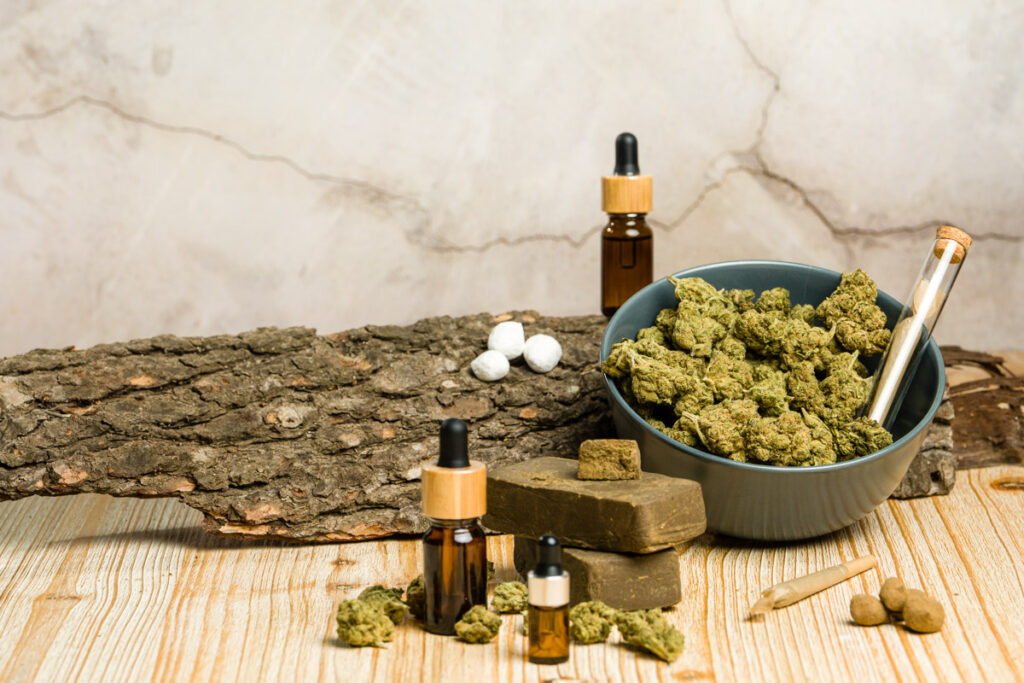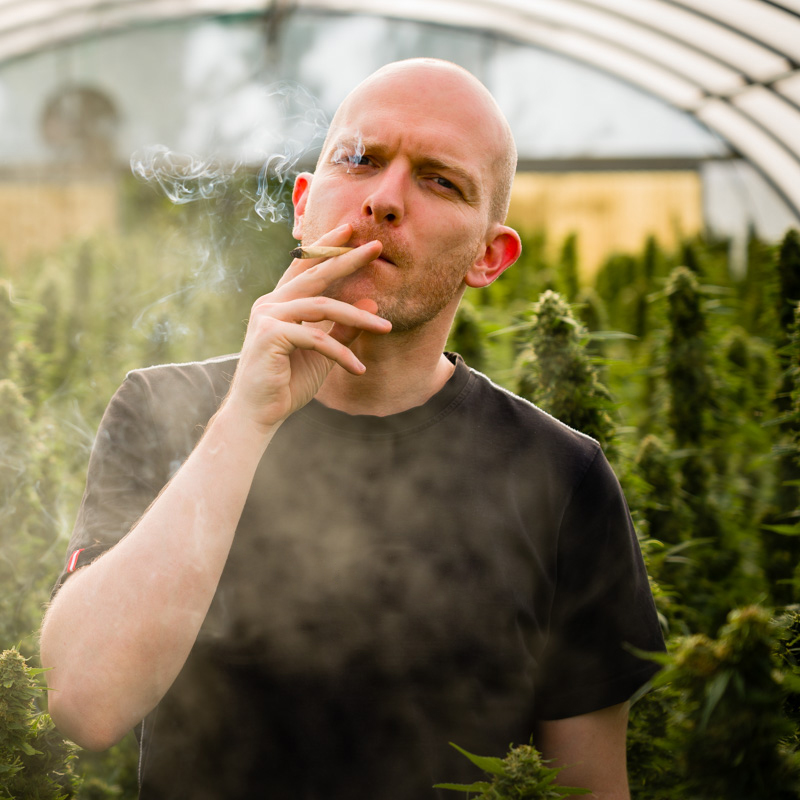CBD products are all the rage right now. Gummies, oils, flowers, candies, lotions, creams: there is something for everyone, and people raves about the positive effects. So, it’s natural, you’re becoming curious, and you want to try it yourself, to see if CBD benefits are true or not. Or maybe you just want to start using CBD products but you also take benzodiazepine so you are not sure about the interaction between this two substances. Whatever it is, you are in the right place. We at hempati.com are gonna explain everything we know about CBD, benzodiazepine and their possibile interaction. At the end, you will read about a surprising effect that CBD can have in helping with benzodiazepine withdrawal. Let’s start!
What is CBD
Maybe you already know it, maybe you don’t, but we like to start from the basic. What is CBD? CBD is a chemical compound found in the hemp plant. CBD is non-psychoactive, and it has therapeutic potential on the body and the mind. It’s not the only hemp compound. The other famous one, THC, is psychoactive and illegal above a certain percentage in Italy.
How does CBD works
CBD interacts with the endocannabinoid system (ECS). The ECS is responsible for how we learn and retain information, how we sleep and eat, pain control and emotional and immune response. It’s easy to understand how studies and researches are starting to think CBD can help with insomnia, sleep disorders in general, muscle tension and muscle pain, anxiety, arthritis, weight regulation, loss of appetite and so much more.
What are benzodiazepines
Benzodiazepines are a class of medicines utilized for the treatment of anxiety symptoms, sedation, and other mental health-related disorders. The goals, when you are prescribed this kind of medicines, are to shorten the frequency, severity, and duration of symptoms. There are a variety of benzodiazepines available for the treatment of anxiety and insomnia, and they can vary in effects duration, side effects and such.
How do benzodiazepines work
Benzodiazepines enhance the effects of the gamma-aminobutyric acid (GABA), a substance that is found in the brain. When this neurotransmitter interacts with the receptors in the brain, it inhibits or slows the activity of the pathway responsible for anxiety, increasing sedation and decreasing anxiousness. This is why benzodiazepines are known as central nervous system (CNS) depressants, or “downer”.
Benzodiazepines: how they can help and what are they used for?
Benzodiazepines can help with anxiety, panic disorder, alcohol withdrawal, seizures and insomnia. Sometimes, especially in the United States, benzodiazepine are used to treat disorders it may not be approved to treat by the Food and Drug Administration (FDA). One such example is the use of benzodiazepines as a treatment for muscle spasms.
We are talking about a serious medicine. Always talk to your doctor, psychiatrist and psychologist first and ask for dosages and others indications of use. The use of a benzodiazepine to treat any disorder is always at the discretion of your doctors, it is not recommended that you take the initiative yourself without asking.
What does interaction between medicines mean
What do we mean when we talk about drug interaction? Sometimes, drugs can interact with another drug but also with foods, beverages and supplements. An interaction can cause a malfunction of the substance, affecting how a drug works on our body, causing side effects or making the drugs less (or more) effective. Some drug interaction can even be very harmful. If you take several different medicines and you want to add another one, for example, you have to ask your doctors first, to avoid potential problems. Learning to read and understand the labels can also be very useful.

There are three categories of drug interactions: the one between two drugs, the one between drugs and foods or beverages and the one between drug and conditions. Sometimes, pre-existing medical condition can make certain substances harmful. If you want to know more about CBD and interaction with other substances, you can click here.
CBD and benzodiazepine: do they interact?
The short answer is: yes, they can and they do. CBD can alter the metabolism of benzodiazepines, increasing the side effects. Some benzodiazepines side effects are: drowsiness, confusion, unsteadiness, dizziness, slurred speech, weakness, constipation, memory problems, nausea, dry mouth. You have to be very careful with that. Certain side effects of CBD and benzodiazepines can overlap. There may also be an increased risk of drowsiness and problems with coordination when using CBD together with benzodiazepines. As always, talk to your doctor.
Benzodiazepine addiction and CBD
When talking about the interactions between CBD and benzodiazepines, it’s important to mention that CBD can help with benzodiazepines withdrawal.
This kind of drugs can be addictive, and fast. Once their effects disappear, the brain can go into a state of anxiety, causing insomnia and emotional instability, mood disturbances, weight loss, sweating, vomiting. Some people swear that CBD helps with that.

It is proven that CBD can act as an anti-convulsant, relieving muscle tremors and tension and helping reduce this painful side effect during benzodiazepine detox. CBD also acts as anti-anxiety and anti-stress. CBD can be a mild sedative. This can help with insomnia that many people are affected by during detox by regulating a person’s sleep patterns. According to one study that observed whether CBD can be used for insomnia published by NIH stated that CBD helped to improve sleep for almost 67% of the patients. 79% of the patients also experienced less anxiety.
Conclusions and warnings
CBD and benzodiazepines interact. If you are thinking of taking them both at the same time, we suggest that you talk with your doctors first. If are experiencing benzodiazepines withdrawal symptoms, maybe CBD can help. But you have to talk to your doctors first in this case too. Don’t think of interrupting benzodiazepines cold turkey. It is a long path and you will need assistance and closeness while you walk it.


